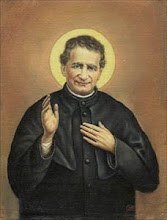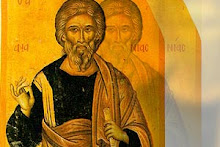THE AUTHENTIC LEADERSHIP OF A CATHOLIC SCHOOL EDUCATOR

The role of being a Catholic educational leader is very distinct as compared to a secular education leader. The reason being, the Catholic educational leader must direct his/her action toward Jesus Christ. Understanding this crucial point differentiates the position of both educational leaders.
In Catholic education as a whole there is a term used to describe the primary emphasis of instruction within a Catholic School environment as expressed in the General Directory for Catechesis. This term called (catechesis) means the authentic instruction of the faith centered on Jesus Christ. Jesus Christ is the Word that became flesh through the Divine Will of the Father.
The mission of catechesis has been practiced from the moment Christ was born. As part of the Church community the Catholic educational leader holds a responsibility not only to immerse him or herself in the Catholic faith, but teach it to all who will listen. The ministry of catechesis serves the Church in a decisive mission. This teaching first and foremost is passed on through the Apostles (the first trained Catholic Educators) and their successors, the Bishops of the Catholic Church. The moment of catechesis is that which corresponds to the period in which conversion to Jesus Christ is formalized, and provides a basis for first adhering to him. (GDC 63)
Quite early on, the name catechesis was given to the totality of the Church’s effort to make disciples, to help men believe that Jesus is the Son of God so that believing they might have life in His name, and to educate and instruct them in this life, building up the body of Christ. (CCC 4, Catechesis In Our Time 1;2)
It is in this totality that the Catholic Educational leader as stated in the General Directory for Catechesis and To Teach As Jesus Did must present a complete authentic instruction of the faith, faithful to the teachings of the Catholic Church so that the fruits of the Church may not go unnoticed or unpracticed. This task of catechesis, then, must be carried out under the guidance of the Church, whose duty it is to safeguard the truth of the divine message, and to watch that this ministry of the Word uses appropriate forms of speaking, while prudently considering the help which theological research and human science can give (General Catechetical Directory 38 and National Catechetical Directory 47). The Bishop holds the primary position of authority over programs of catechesis (Ibid 47).
The educational mission of the Church is an integrated ministry embracing three interlocking dimensions: the message revealed by God (didache) which the church proclaims; fellowship in the life of the Holy Spirit (koinonia), service to the Christian Community and to the entire human community (diakonia). While these three essential elements can be separated for the sake of analysis, they are joined in the one educational ministry (Teach As Jesus Did 14).
Catholic Educators are co-operators with Christ the Teacher. Their responsibility lies in creating a true Catholic environment for all children. This Catholic ethos rests on the use of Sacred Scripture and the Catechism of the Catholic Church. Both serve and establish a symphony of the faith rooted in the Blessed Trinity. The Trinity is central to all Christian understanding. It is the pillar of catechesis.
In conclusion a final point of emphasis for the Catholic Educational leader is expressed in the church document entitled The Religious Dimension of Education in a Catholic School where it in discusses the importance of climate; from the first moment that a student sets foot in a Catholic School, he or she ought to have the impression of entering a new environment, one illumined by the light of faith, and having its own unique characteristics. (25) The Catholic Educational Leader is called forth to exhibit a leadership that is distinctively Catholic in every fiber of a Catholic school.



